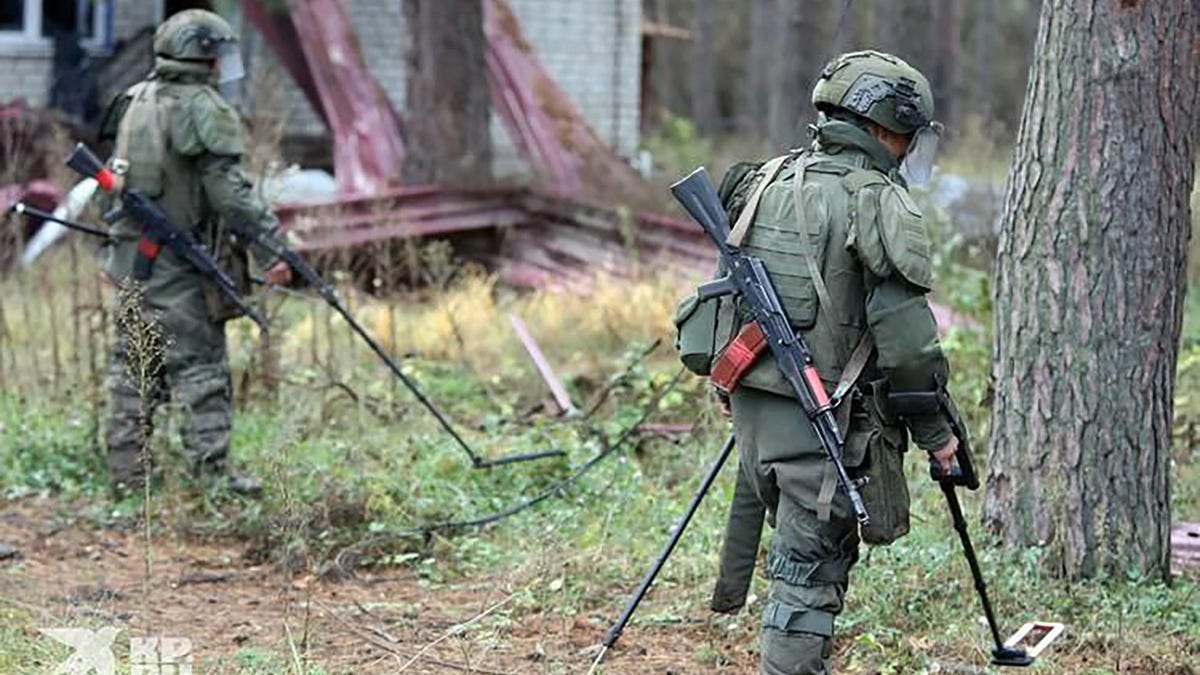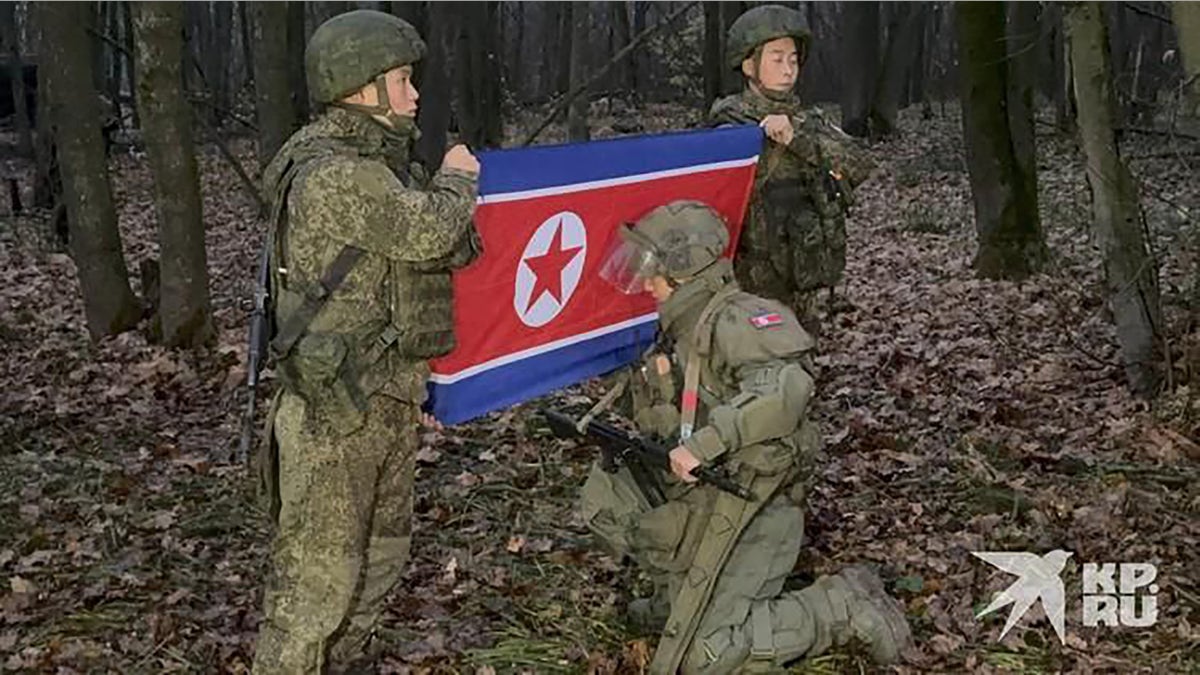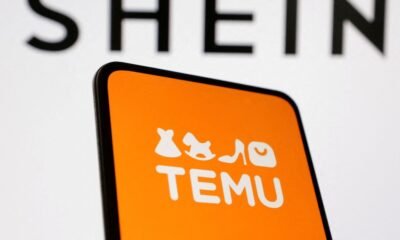INTERNACIONAL
Cómo las algas ayudaron a que la vida marina sobreviviera a la mayor extinción de la Tierra

Hace aproximadamente 252 millones de años, la Tierra fue escenario de la extinción masiva del Pérmico-Triásico, el mayor evento de desaparición de especies en la historia del planeta. Alrededor del 81% de las especies marinas sucumbió, sumiendo los océanos en un estado de crisis que duró cientos de miles de años. No obstante, investigaciones recientes señalan que un grupo de algas microscópicas desempeñó un papel decisivo al sostener parte de la vida marina en medio de ese contexto extremo, especialmente en las frías aguas del actual Ártico noruego.
El archipiélago de Svalbard, en el norte de Noruega, ha ofrecido a la ciencia claves inesperadas. Un equipo encabezado por S. Z. Buchwald y publicado en AGU Advances analizó 32 muestras de roca correspondientes a sedimentos formados antes y después de la extinción del Pérmico. El objetivo: identificar rastros de vida y reconstruir la dinámica de los ecosistemas que afrontaron el mayor colapso biológico conocido.
El análisis reveló un notable incremento en la concentración de dos biomarcadores lipídicos —C33-n-alkilciclohexano (C33-n-ACH) y fitanil tolueno— tras la extinción. Estos compuestos, vestigios moleculares de organismos marinos antiguos, funcionan como indicadores de la abundancia y tipo de vida presente en los mares de aquella época.
En las capas posteriores a la extinción, los niveles de C33-n-ACH eran hasta 10 veces más altos que en las muestras previas, una diferencia que, de acuerdo con la American Geophysical Union, no puede atribuirse a la degradación natural, sino que refleja un auténtico auge biológico. Por su parte, el fitanil tolueno prácticamente no existía antes de la crisis global, pero se multiplicó tras ella, aunque su presencia se detectó solo en Svalbard.
Estos resultados sugieren que distintos tipos de fitoplancton adaptado lograron sobrevivir y prosperar en ambientes extremos, favorecidos por condiciones específicas de temperatura y composición del agua.
Para profundizar en la singularidad de Svalbard, el estudio también incluyó muestras de regiones situadas en latitudes tropicales durante el Pérmico, como el norte de Italia, el sur de China y Turquía. Todas estas regiones integraban entonces el entorno del antiguo océano Tetis, que albergaba una biodiversidad marina extraordinaria antes de la crisis.
Sin embargo, en estos entornos cálidos, la abundancia de C33-n-ACH fue significativamente menor y el fitanil tolueno estuvo totalmente ausente. Solo en Italia apareció, en pequeña cantidad, el primer biomarcador tras la extinción, lo que representa la primera evidencia de su presencia en la región tropical del Tetis más allá de China. Pese a ello, la diferencia entre los polos y los trópicos se mantuvo: las algas resilientes se concentraban sobre todo en las latitudes medias y altas, donde encontraron refugio frente al colapso generalizado.

Según la American Geophysical Union, estos hallazgos refuerzan la idea de que los océanos de regiones frías ofrecieron condiciones menos severas durante la extinción masiva, lo que permitió que formas de vida especialmente resistentes —como las microalgas estudiadas— se convirtieran en pilares para la supervivencia.
El auge de estos biomarcadores en Svalbard indica que ciertas algas microscópicas supieron adaptarse rápidamente a las nuevas y adversas condiciones ambientales, algo que fue esencial para la reactivación de las cadenas alimentarias en los mares devastados.
El estudio sugiere que estos productores primarios fueron capaces de formar floraciones que sirvieron de alimento para los pocos animales marinos que lograron resistir la crisis, lo que favoreció la lenta, pero decisiva, recuperación de los ecosistemas.
La investigación subraya además que estos microorganismos tienden a concentrarse en aguas frías y ricas en nutrientes, ambientes que durante el Pérmico final resultaron menos afectados por la anoxia —la falta de oxígeno— y el envenenamiento por gases volcánicos, factores letales en los trópicos. Es en este contexto donde el fitoplancton resistente desempeñó un rol de auténtico salvavidas para la biodiversidad marina incipiente.
El caso de las microalgas de Svalbard ofrece una lección valiosa sobre la capacidad adaptativa de la vida frente a crisis ambientales extremas. El análisis de biomarcadores en rocas antiguas no solo demuestra la función de estos organismos en la recuperación tras la “Gran Mortandad”, sino que también evidencia cómo los ecosistemas más flexibles pueden convertirse en refugios clave cuando la mayoría de las especies sucumbe.
Este tipo de investigaciones resulta fundamental en la actualidad, cuando el planeta enfrenta retos ambientales sin precedentes. Comprender la historia ecológica profunda brinda claves para anticipar los eventuales efectos del cambio climático y para identificar aquellos factores —como la diversidad de fitoplancton y su capacidad de adaptación— que podrían determinar el futuro de la vida marina.
Así, en medio del mayor episodio de destrucción biológica, el frío Ártico se transformó en un inesperado santuario. Allí, las algas microscópicas, invisibles pero esenciales, se convirtieron en el motor de la recuperación de la vida, demostrando que, frente a la adversidad, la resiliencia biológica encuentra caminos insospechados para florecer.
Environment,Europe,LONGYEARBYEN
INTERNACIONAL
GOP unity shattered by controversial measure in government shutdown bill

NEWYou can now listen to Fox News articles!
The House is expected to vote next week on repealing a controversial measure in the bill that ended the government shutdown.
It caused heartburn for House Republicans in the final days of the shutdown and provided fresh ammo for Democrats hoping to delay their federal funding legislation in its final hours.
The provision, tucked into the Legislative Branch appropriations bill and dubbed «Requiring Senate Notification for Senate Data,» would allow senators directly targeted in former special counsel Jack Smith’s Arctic Frost investigation to sue the U.S. government for up to $500,000.
House Appropriations Committee Chairman Tom Cole, R-Okla., who was involved in crafting part of the successful funding deal, told Fox News Digital he had even been afraid it could derail the final vote to end the shutdown.
PROGRESSIVE DEMOCRATS TURN ON PARTY LEADERSHIP AFTER GOVERNMENT SHUTDOWN ENDS WITHOUT HEALTHCARE GUARANTEES
Rep. Chip Roy is among the House Republicans objecting to taxpayer money being used for senators’ lawsuits over ex-Special Counsel Jack Smith’s probe. (Tom Brenner/Getty Images; Saul Loeb/AFP via Getty Images; Tracy Glantz/The State/Tribune News Service via Getty Images)
«It had been done without our knowledge. I mean, it had been added in the Senate without our knowledge,» Cole said. «It was a real trust factor … I mean, all of a sudden, this pops up in the bill, and we’re confronted with either leave this in here, or we pull it out, we have to go to conference, and the government doesn’t get reopened.»
It was placed into the bill by Senate Majority Leader John Thune, R-S.D., and given the green light by Senate Minority Leader Chuck Schumer, D-N.Y., sources confirmed to Fox News Digital.
Thune put the provision into the bill at the request of members of the Senate GOP, a source familiar with the negotiations told Fox News Digital, which included Sens. Lindsey Graham, R-S.C., and Sen. Ted Cruz, R-Texas.
It was a big point of contention when the House Rules Committee met to prepare the legislation for a final vote on Tuesday night. Reps. Chip Roy, R-Texas, Austin Scott, R-Ga., and Morgan Griffith, R-Va., all shared House Democrats’ frustration with the measure, but they made clear it would not stand in the way of ending what had become the longest shutdown in history.
Those Republicans agreed with the motivations behind their Senate counterparts wanting to sue but bristled over the notion that it would come at the expense of U.S. taxpayers.
SENATOR RON JOHNSON WARNS GOP WILL BE IN ‘BIG TROUBLE’ IF PARTY IGNORES DEMOCRATS’ PLAN TO ‘NUKE’ FILIBUSTER
Roy told Fox News Digital that he brought his concerns to the Senate GOP himself.
«Well, they heard them,» Roy said when asked how those concerns were received. «I mean, you know, the lords don’t like to be told by mere commoners what to do. But we’re going to have to take a pretty strong stand on this one.»
The measure’s inclusion was enough for Rep. Greg Steube, R-Fla., to vote against the final bill, telling reporters, «I’m not voting to send Lindsey Graham half a million dollars.»
Rep. John Rose, R-Tenn., among the GOP lawmakers outside the Rules Committee who made their concerns public, introduced legislation to repeal the provision.

Rep. Greg Steube, R-Fla., makes his way to a House Republican Conference meeting with President Donald Trump on the budget reconciliation bill in the U.S. Capitol on May 20, 2025. (Tom Williams/CQ-Roll Call, Inc via Getty Images)
«The American people should not be asked to make compensation to United States senators, the ultimate insiders, if you will — who have been wronged, no doubt in my mind … this provision does not allow other Americans to pursue a remedy. It does not even allow the President of the United States, who was equally wrongfully surveilled and pursued by the Justice Department — they didn’t even include President Trump in this,» Rose told Fox News Digital. «They saved this special treat for themselves. And, you know, frankly, the right answer is that they should all disavow that immediately.»
House Speaker Mike Johnson, R-La., appeared equally, if not more, annoyed when asked by reporters about the measure. He said a vote on repealing it would be fast-tracked next week and hoped his Senate counterparts would do the same.
«I was just as surprised by the inclusion of that language as anyone. I had no prior notice of it at all,» Johnson said. «I was frustrated, as my colleagues are over here, and I thought it was untimely and inappropriate. So we’ll be requesting, strongly urging, our Senate colleagues to repeal that.»
But there was an appetite among Senate Republicans to respond to Smith’s investigation, where senators were not notified that their records would be requested without notification. And the provision is narrowly tailored to just include senators and would require that they be notified if their information is requested by the Department of Justice (DOJ). The idea is to prevent the abuse of the DOJ to go after sitting senators now and in the future.
Graham, when asked if he would be filing a lawsuit, told reporters in South Carolina, «Oh, definitely.»
«And if you think I’m going to settle this thing for a million dollars? No. I want to make it so painful no one ever does this again,» he said.
When asked for comment on the matter, Cruz’s office pointed Fox News Digital to comments he made in a recent Politico report.

Sen. Ted Cruz, R-Texas, speaks to reporters on his way to the Senate weekly policy luncheons at the U.S. Capitol in Washington on Dec. 6, 2022. (Kevin Dietsch/Getty Images)
«Leader Thune inserted that in the bill to provide real teeth to the prohibition on the Department of Justice targeting senators,» Cruz told Politico.
Several senators were unaware of the provision’s inclusion, including Sen. Martin Heinrich, D-N.M., the top Democrat on the Legislative Branch appropriations subcommittee.
«I am furious that the Senate Minority and Majority Leaders chose to airdrop this provision into this bill at the eleventh hour — with zero consultation or negotiation with the subcommittee that actually oversees this work,» Heinrich said in a statement to Fox News Digital. «This is precisely what’s wrong with the Senate.»
TRUMP SIGNS BILL ENDING LONGEST GOVERNMENT SHUTDOWN IN US HISTORY
Most of the eight senators who did have their phone records subpoenaed as part of Smith’s investigation were also unaware of the provision until the legislation was unveiled over the weekend and have no intent to file a lawsuit.
Sen. Dan Sullivan, R-Alaska, «first learned about this provision when he and his staff were reading the bill to open the government,» Amanda Coyne, a senior advisor for the lawmaker, told Fox News Digital. «The senator has no plans to sue.»

Sen. Dan Sullivan, R-Alaska, heads to votes at the U.S. Capitol on Jan. 9, 2025. (Allison Robbert/AFP via Getty Images)
And Sen. Ron Johnson, R-Wis., who has pressed for a full disclosure of the probe alongside Senate Judiciary Chairman Chuck Grassley, R-Iowa, told Fox News Digital in a statement, «I have no plans at this time» to sue.
«If I did sue, it would only be for the purpose of using the courts to expose the corrupt weaponization of federal law enforcement by the Biden and Obama administrations,» he said. «With the full cooperation in our congressional investigations from the Trump DOJ and FBI, that shouldn’t be necessary.»
CLICK HERE TO GET THE FOX NEWS APP
But he noted that he supports the provision, «As a deterrent to prevent future misuse of federal agencies.»
Sen. Marsha Blackburn, R-Tenn., plans to seek a declaratory judgment, rather than monetary, over her phone records being requested by Smith before the provision was added into the bill. She said she would support plans to repeal the provision.
«If the Senate votes on the bill to undo the Arctic Frost provision in the government funding bill, I will support the effort to reverse it,» she said in a statement to Fox News Digital. «This fight is not about the money; it is about holding the left accountable for the worst weaponization of government in our nation’s history.»
house of representatives politics,senate,congress,politics,government shutdown
INTERNACIONAL
New footage shows North Korean troops clearing dangerous mines for Russia in war zone

NEWYou can now listen to Fox News articles!
New footage released by Russia’s defense ministry shows North Korean troops clearing mines in the war-ravaged Kursk region in western Russia, the latest sign of deepening military cooperation between Moscow and Pyongyang.
The footage shows North Korean soldiers handling detection equipment, receiving instructions from Russian engineers, and singing patriotic songs before beginning their work. A Russian commander with the call sign «Veles» said, «They’re great lads, they learn quickly, listen attentively and take notes.» Another commander, «Lesnik,» said the North Koreans were operating «on an equal level with my sappers, carrying out the same tasks as my guys.»
According to Reuters, Russia says the North Korean deployment follows last year’s fighting that helped repel a major Ukrainian incursion into the western Kursk region. South Korean, Ukrainian and Western sources told Reuters that North Korea sent about 14,000 troops under a mutual defense pact and that more than 6,000 were killed. The battlefield casualty numbers could not be independently verified.
NORTH KOREA HAS SENT TROOPS TO RUSSIA, PENTAGON CONFIRMS
Russia openly boasts about using North Korean soldiers for demining in its war-hit Kursk region. (East to West News Agency)
The Russian defense ministry channel Zvezda claims that the new demining unit was «created and sent to the Kursk region by order of Commander-in-Chief Kim Jong Un.» The channel said North Korean engineers «arrived in the Kursk region already experienced in carrying out missions in their homeland» and then «received extensive additional training by the Engineering Troops of the Russian Armed Forces.»
In the footage released by the Russian defense ministry, Pyongyang’s sappers begin each operation by venerating the North Korean flag, describing it as a sign of their readiness «to carry out any order from the Supreme Leader.» The Russian defense ministry claims Russian instructors taught them to handle «the latest NATO and Ukrainian mines» and to counter drones.
GIVING PUTIN THE DONBAS WOULD HAND MOSCOW POWERFUL LEVERAGE OVER KYIV’S FINANCIAL SURVIVAL

Footage released by Moscow shows North Korean sappers using Russian de-mining equipment in the war-scarred Kursk region (East to West News Agency)
In the footage released by the Russian defense ministry, Pyongyang’s sappers begin each operation by venerating the North Korean flag, describing it as a sign of their readiness «to carry out any order from the Supreme Leader.» The Russian defense ministry claims Russian instructors taught them to handle «the latest NATO and Ukrainian mines» and to counter drones. According to the report, North Korean engineers now use Russian robotic demining platforms such as the Stalker and Uran-6.
The East to West News Agency reported that the first of thousands of North Korean military engineers have begun clearing explosives in the region, describing the mission as aimed at reducing the risk to Russian personnel. Ukraine’s military intelligence chief, Lt. Gen. Kyrylo Budanov, has also said North Korea is deploying 6,000 engineers to Russia.
Ukrainian President Volodymyr Zelensky said that out of up to 12,000 North Koreans sent to support Russia’s war effort, «their losses are more than 4,000. I think two-thirds have died.» Fox News Digital could not independently confirm casualty figures.
KIM JONG UN ACKNOWLEDGES DEATHS OF 100 NORTH KOREAN SOLDIERS HE SENT TO FIGHT FOR VLADIMIR PUTIN

North Korean troops sweeping minefields left behind in the Kursk region after months of fighting. (East to West News Agency)
Russian military outlet Krasnaya Zvezda reported that Russian and North Korean teams are confronting a «previously unseen density» of anti-tank and antipersonnel mines allegedly left by Ukrainian forces, adding that many of the devices were manufactured by NATO members. Reuters could not independently verify battlefield conditions.
According to the outlet, 37 of the 64 settlements in the Bolshesoldatsky district remain closed to civilians because of mines. The report also said the sappers continue to come under Ukrainian artillery and drone fire, which Reuters was also unable to confirm.
Ukrainian forces stormed into the Kursk region in August 2024, holding parts of the area for months. Russian President Vladimir Putin announced in April that Russian troops, supported by North Korean units, had pushed them out.
CLICK HERE TO DOWNLOAD THE FOX NEWS APP

Russia openly boasts about using North Korean soldiers for demining in its war-hit Kursk region. (East to West News Agency)
North Korean leader Kim Jong Un said last month that the countries’ military cooperation would «advance non-stop,» Reuters reported.
Reuters contributed to this report.
ukraine,russia,north korea,conflicts,world
INTERNACIONAL
Elecciones en Chile: voto útil, voto silencioso y decisiones de última hora, las variables que pueden torcer la balanza el domingo

El voto de último momento
«Triple empate»
El voto oculto

 ECONOMIA2 días ago
ECONOMIA2 días agoGuiño al crédito fintech: el BCRA autorizará el débito directo de cuotas, prohibido durante el Gobierno anterior

 POLITICA2 días ago
POLITICA2 días agoDe Vido pidió cumplir la pena en su casa y cuestionará ante la ONU su detención

 POLITICA19 horas ago
POLITICA19 horas agoUna auditoría en el PAMI detectó fraudes y falsificaciones en órdenes médicas





























